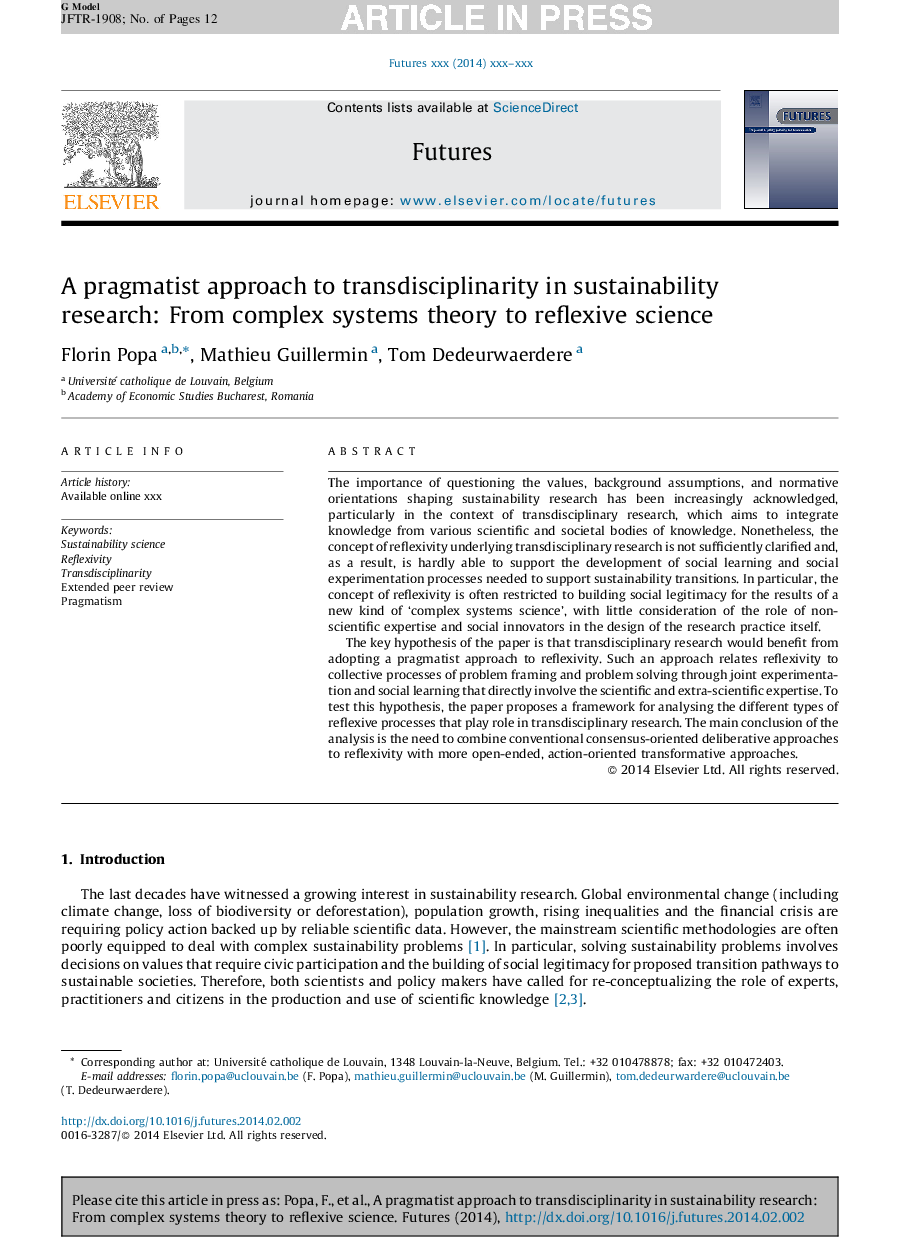| Article ID | Journal | Published Year | Pages | File Type |
|---|---|---|---|---|
| 7424297 | Futures | 2015 | 12 Pages |
Abstract
The key hypothesis of the paper is that transdisciplinary research would benefit from adopting a pragmatist approach to reflexivity. Such an approach relates reflexivity to collective processes of problem framing and problem solving through joint experimentation and social learning that directly involve the scientific and extra-scientific expertise. To test this hypothesis, the paper proposes a framework for analysing the different types of reflexive processes that play role in transdisciplinary research. The main conclusion of the analysis is the need to combine conventional consensus-oriented deliberative approaches to reflexivity with more open-ended, action-oriented transformative approaches.
Related Topics
Social Sciences and Humanities
Business, Management and Accounting
Business and International Management
Authors
Florin Popa, Mathieu Guillermin, Tom Dedeurwaerdere,
